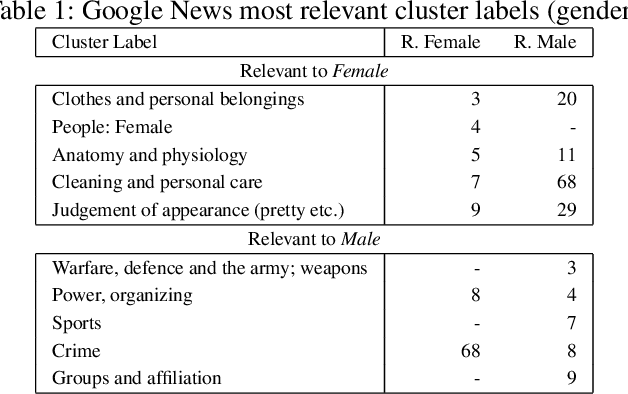Tom van Nuenen
Normative Evaluation of Large Language Models with Everyday Moral Dilemmas
Jan 30, 2025Abstract:The rapid adoption of large language models (LLMs) has spurred extensive research into their encoded moral norms and decision-making processes. Much of this research relies on prompting LLMs with survey-style questions to assess how well models are aligned with certain demographic groups, moral beliefs, or political ideologies. While informative, the adherence of these approaches to relatively superficial constructs tends to oversimplify the complexity and nuance underlying everyday moral dilemmas. We argue that auditing LLMs along more detailed axes of human interaction is of paramount importance to better assess the degree to which they may impact human beliefs and actions. To this end, we evaluate LLMs on complex, everyday moral dilemmas sourced from the "Am I the Asshole" (AITA) community on Reddit, where users seek moral judgments on everyday conflicts from other community members. We prompted seven LLMs to assign blame and provide explanations for over 10,000 AITA moral dilemmas. We then compared the LLMs' judgments and explanations to those of Redditors and to each other, aiming to uncover patterns in their moral reasoning. Our results demonstrate that large language models exhibit distinct patterns of moral judgment, varying substantially from human evaluations on the AITA subreddit. LLMs demonstrate moderate to high self-consistency but low inter-model agreement. Further analysis of model explanations reveals distinct patterns in how models invoke various moral principles. These findings highlight the complexity of implementing consistent moral reasoning in artificial systems and the need for careful evaluation of how different models approach ethical judgment. As LLMs continue to be used in roles requiring ethical decision-making such as therapists and companions, careful evaluation is crucial to mitigate potential biases and limitations.
Discovering and Interpreting Conceptual Biases in Online Communities
Oct 27, 2020



Abstract:Language carries implicit human biases, functioning both as a reflection and a perpetuation of stereotypes that people carry with them. Recently, ML-based NLP methods such as word embeddings have been shown to learn such language biases with striking accuracy. This capability of word embeddings has been successfully exploited as a tool to quantify and study human biases. However, previous studies only consider a predefined set of conceptual biases to attest (e.g., whether gender is more or less associated with particular jobs), or just discover biased words without helping to understand their meaning at the conceptual level. As such, these approaches are either unable to find conceptual biases that have not been defined in advance, or the biases they find are difficult to interpret and study. This makes existing approaches unsuitable to discover and interpret biases in online communities, as such communities may carry different biases than those in mainstream culture. This paper proposes a general, data-driven approach to automatically discover and help interpret conceptual biases encoded in word embeddings. We apply this approach to study the conceptual biases present in the language used in online communities and experimentally show the validity and stability of our method.
Discovering and Categorising Language Biases in Reddit
Aug 13, 2020



Abstract:We present a data-driven approach using word embeddings to discover and categorise language biases on the discussion platform Reddit. As spaces for isolated user communities, platforms such as Reddit are increasingly connected to issues of racism, sexism and other forms of discrimination. Hence, there is a need to monitor the language of these groups. One of the most promising AI approaches to trace linguistic biases in large textual datasets involves word embeddings, which transform text into high-dimensional dense vectors and capture semantic relations between words. Yet, previous studies require predefined sets of potential biases to study, e.g., whether gender is more or less associated with particular types of jobs. This makes these approaches unfit to deal with smaller and community-centric datasets such as those on Reddit, which contain smaller vocabularies and slang, as well as biases that may be particular to that community. This paper proposes a data-driven approach to automatically discover language biases encoded in the vocabulary of online discourse communities on Reddit. In our approach, protected attributes are connected to evaluative words found in the data, which are then categorised through a semantic analysis system. We verify the effectiveness of our method by comparing the biases we discover in the Google News dataset with those found in previous literature. We then successfully discover gender bias, religion bias, and ethnic bias in different Reddit communities. We conclude by discussing potential application scenarios and limitations of this data-driven bias discovery method.
* Author's copy of the paper accepted at the International AAAI Conference on Web and Social Media (ICWSM 2021)
Bias and Discrimination in AI: a cross-disciplinary perspective
Aug 11, 2020Abstract:With the widespread and pervasive use of Artificial Intelligence (AI) for automated decision-making systems, AI bias is becoming more apparent and problematic. One of its negative consequences is discrimination: the unfair, or unequal treatment of individuals based on certain characteristics. However, the relationship between bias and discrimination is not always clear. In this paper, we survey relevant literature about bias and discrimination in AI from an interdisciplinary perspective that embeds technical, legal, social and ethical dimensions. We show that finding solutions to bias and discrimination in AI requires robust cross-disciplinary collaborations.
 Add to Chrome
Add to Chrome Add to Firefox
Add to Firefox Add to Edge
Add to Edge